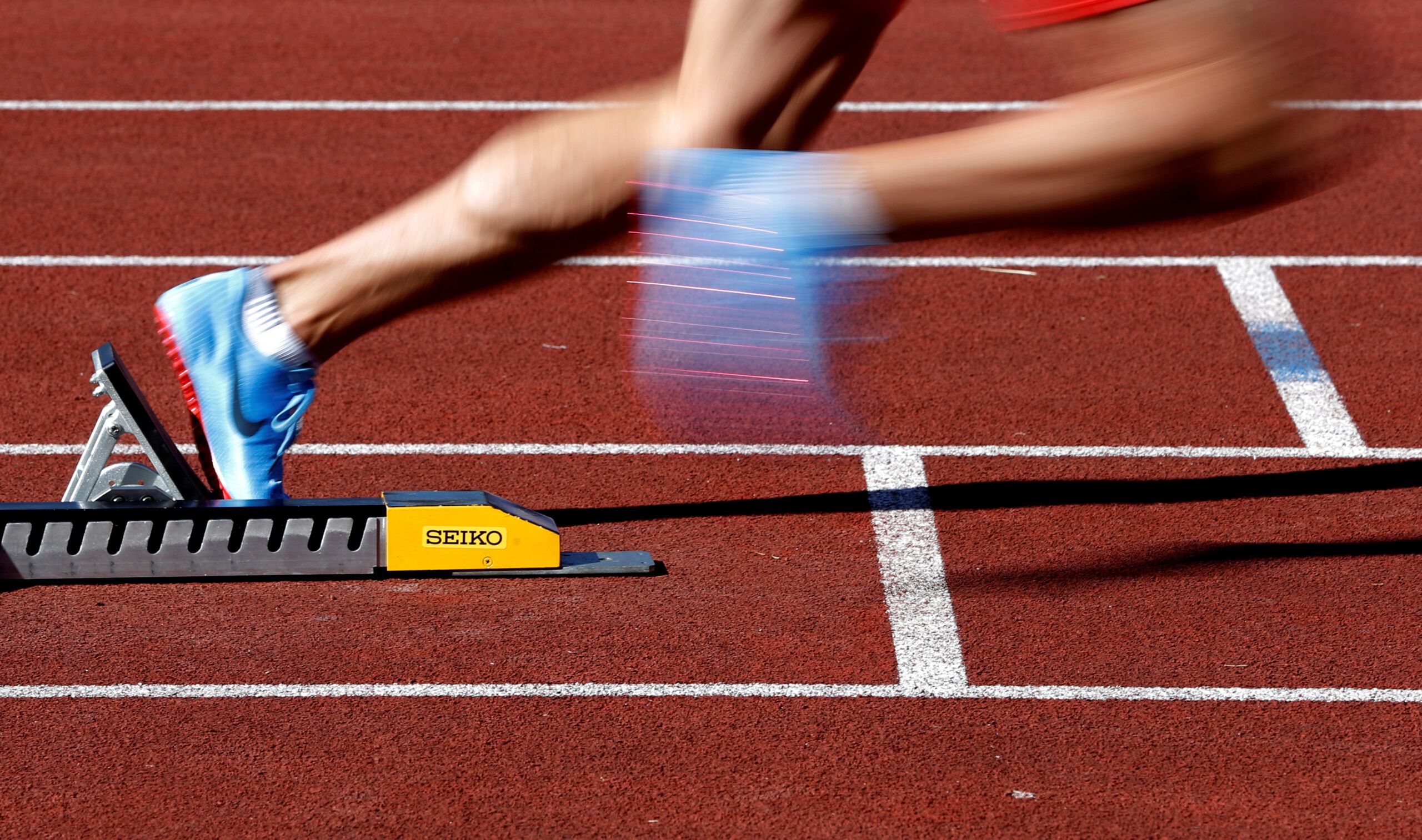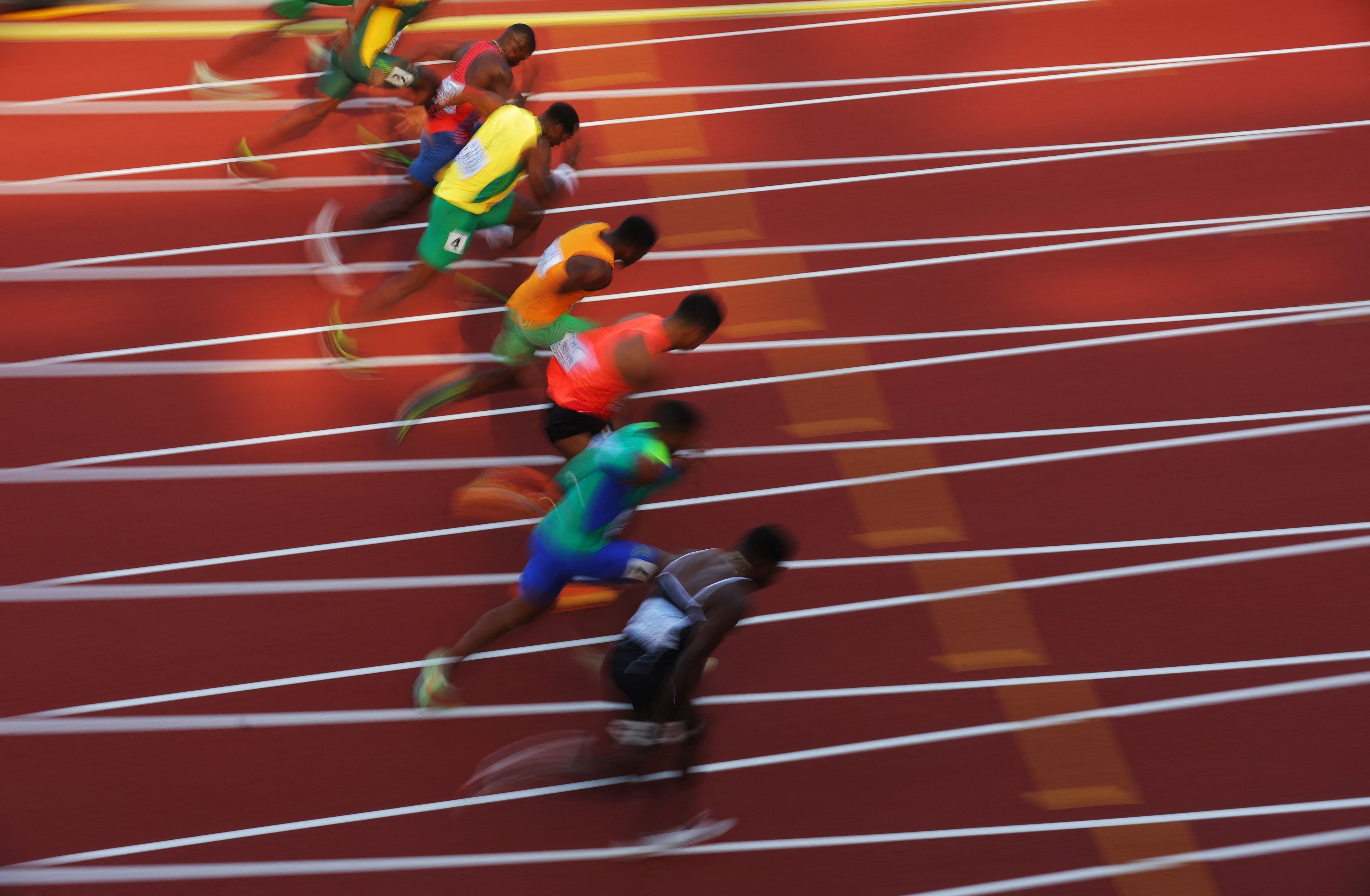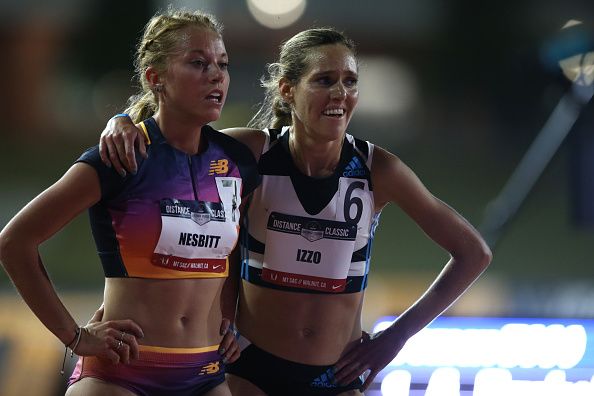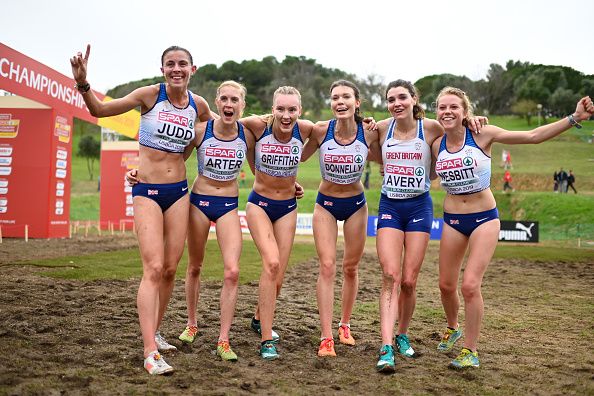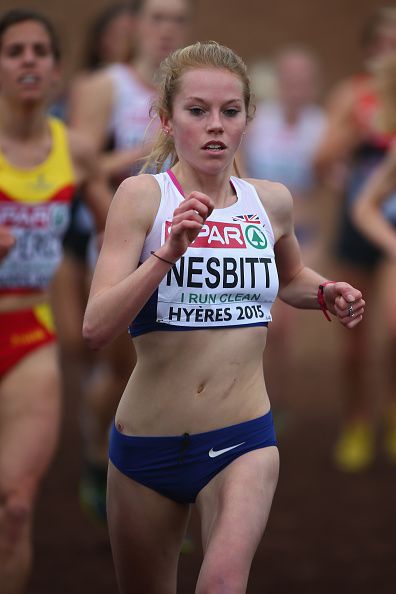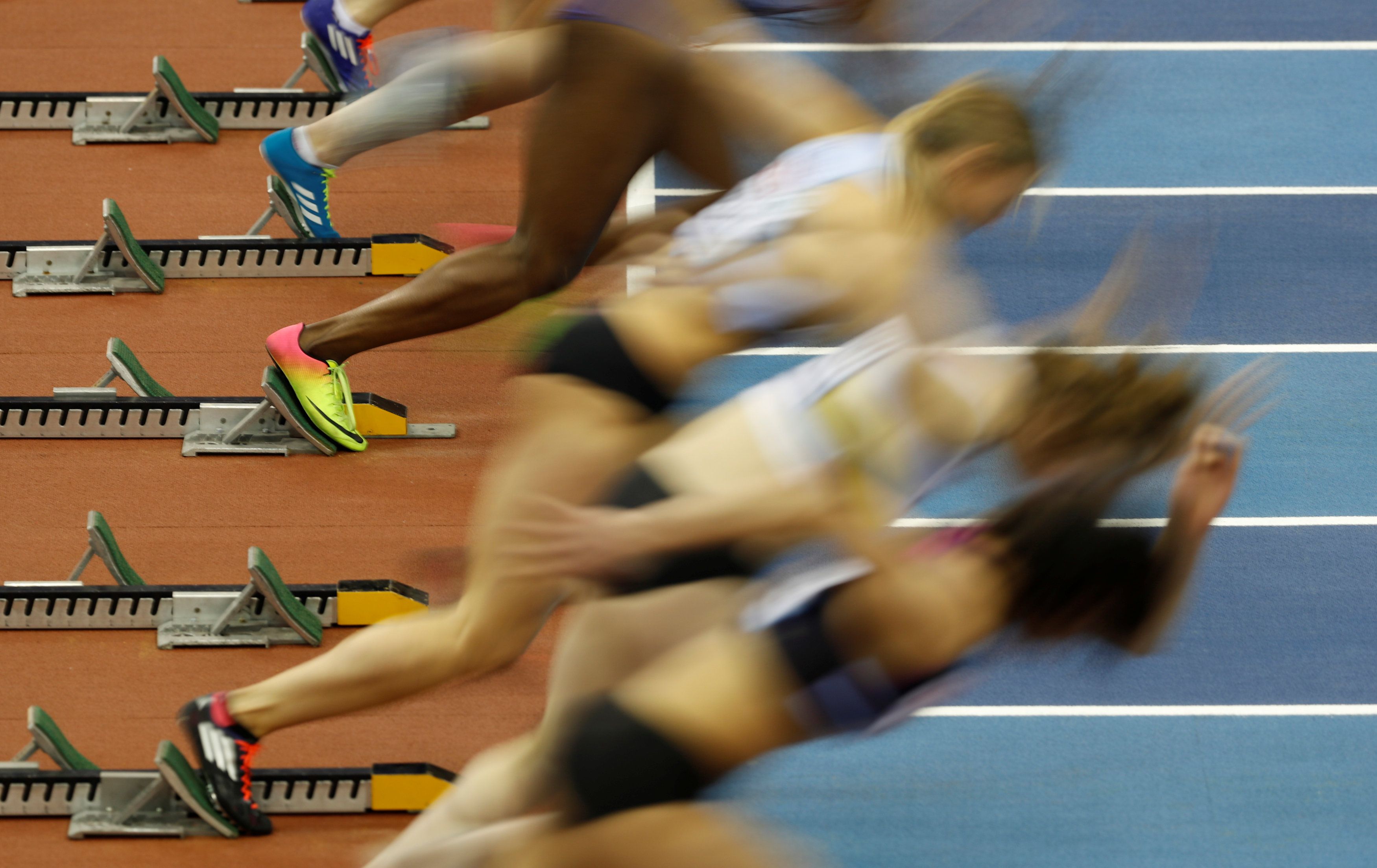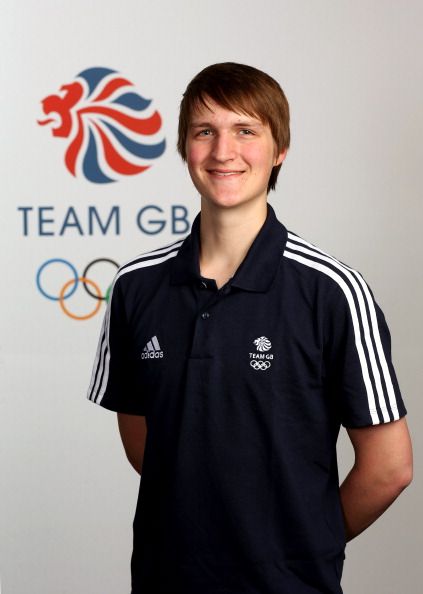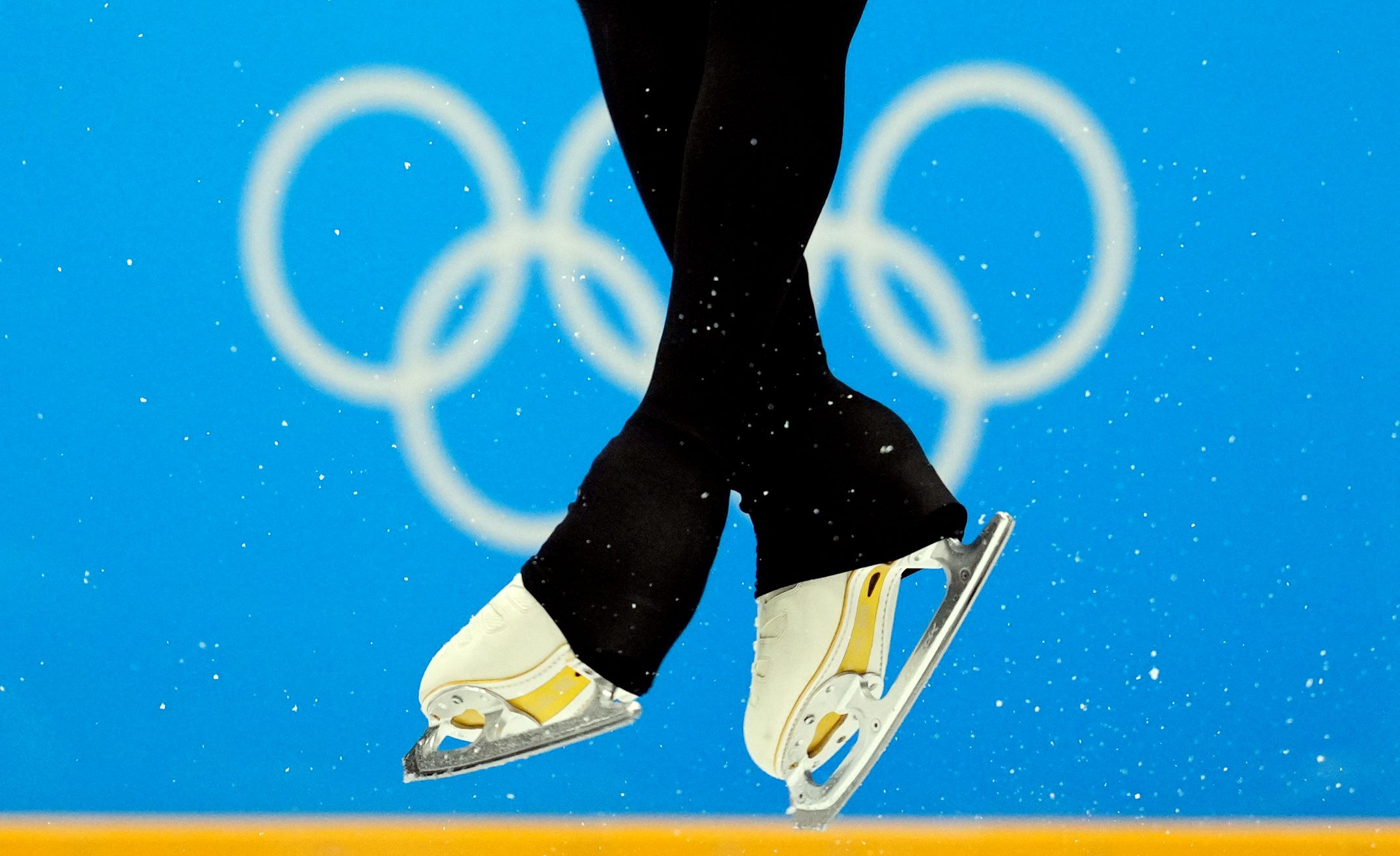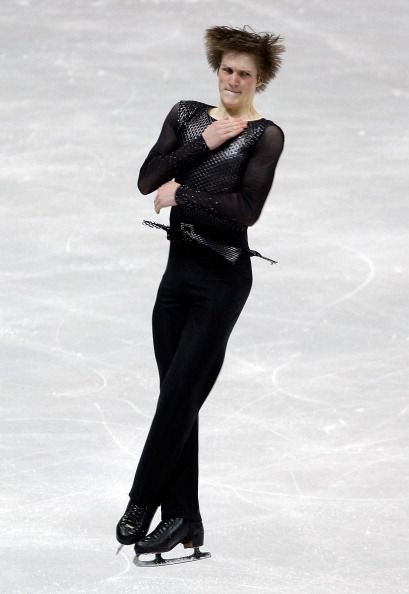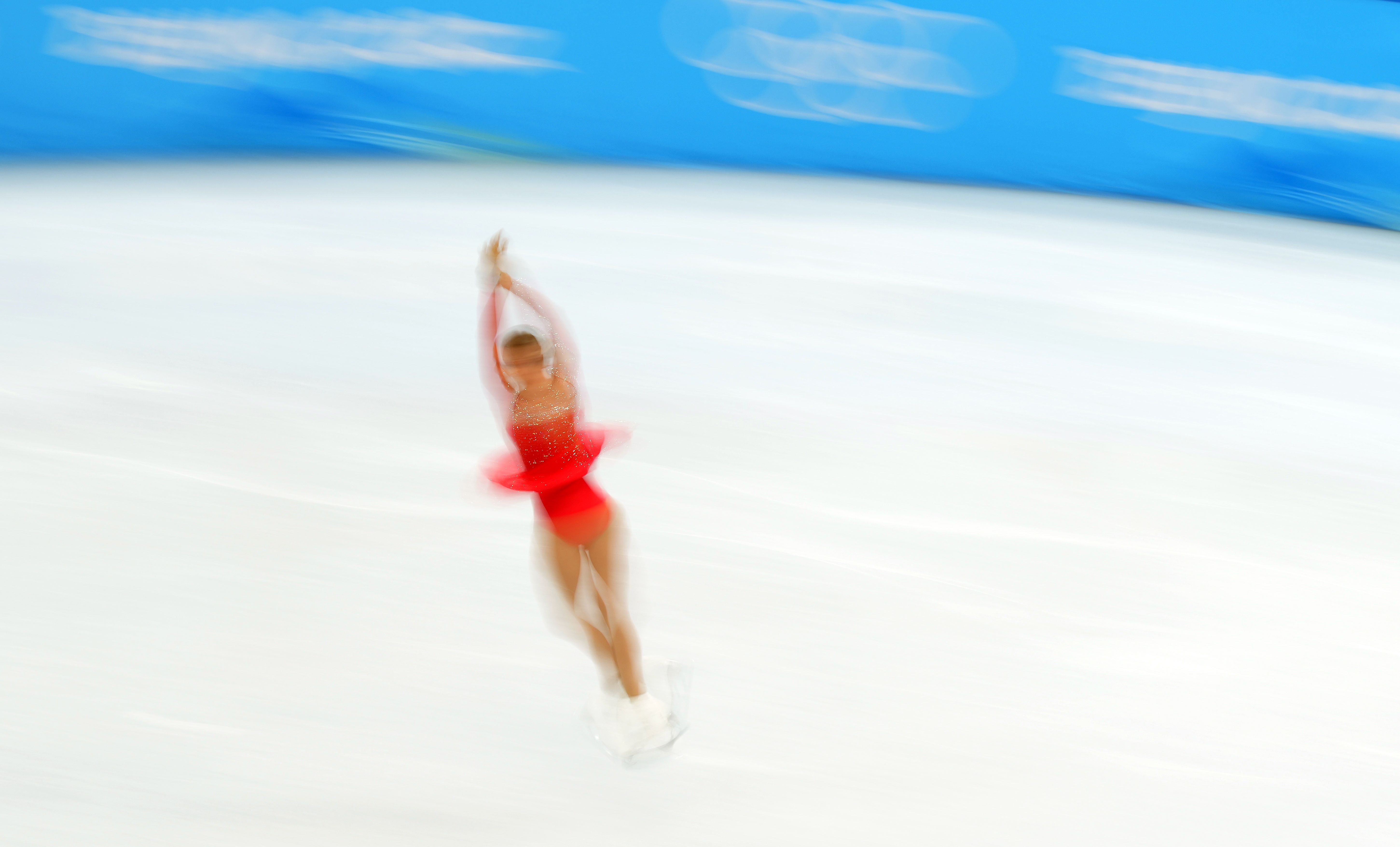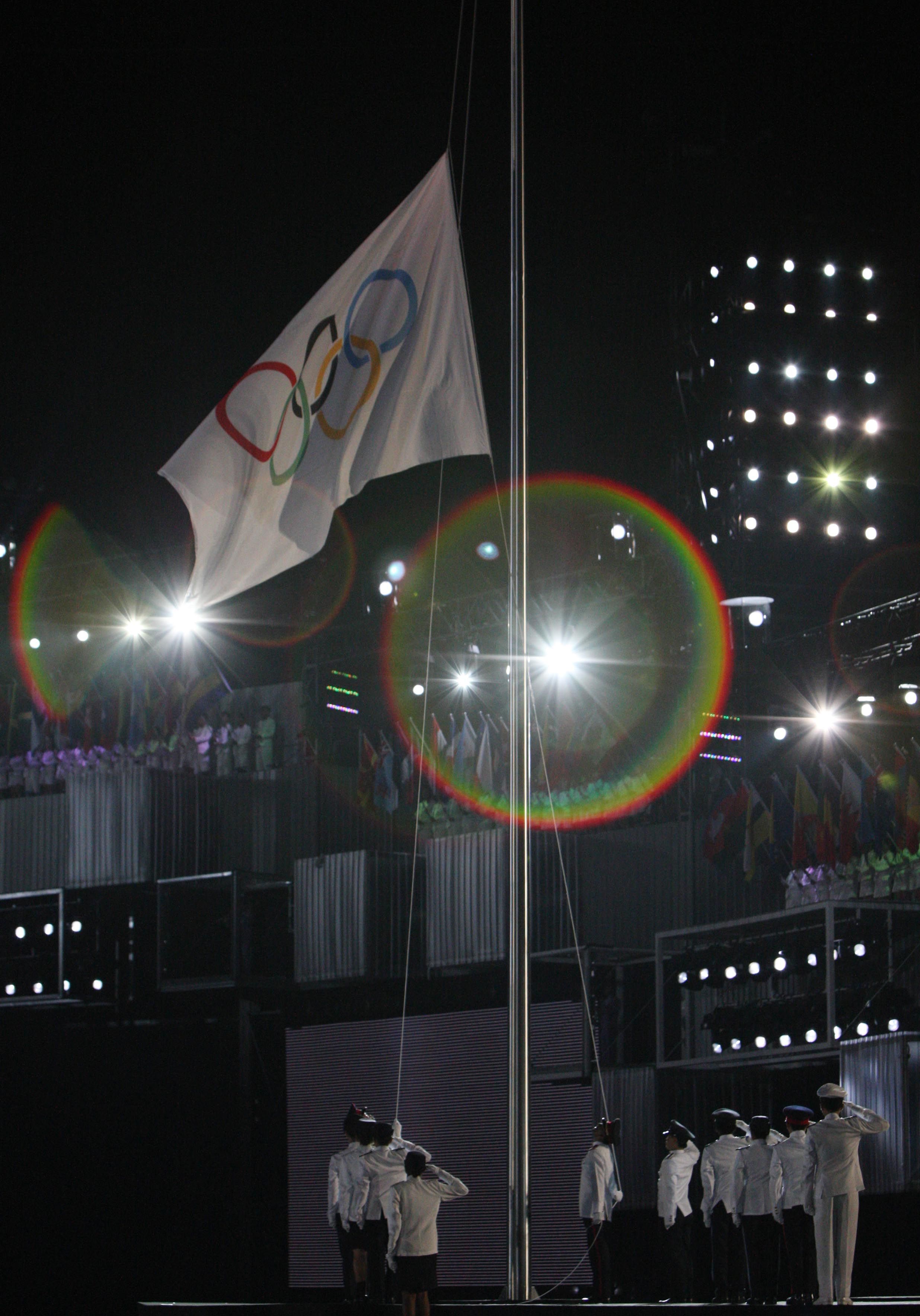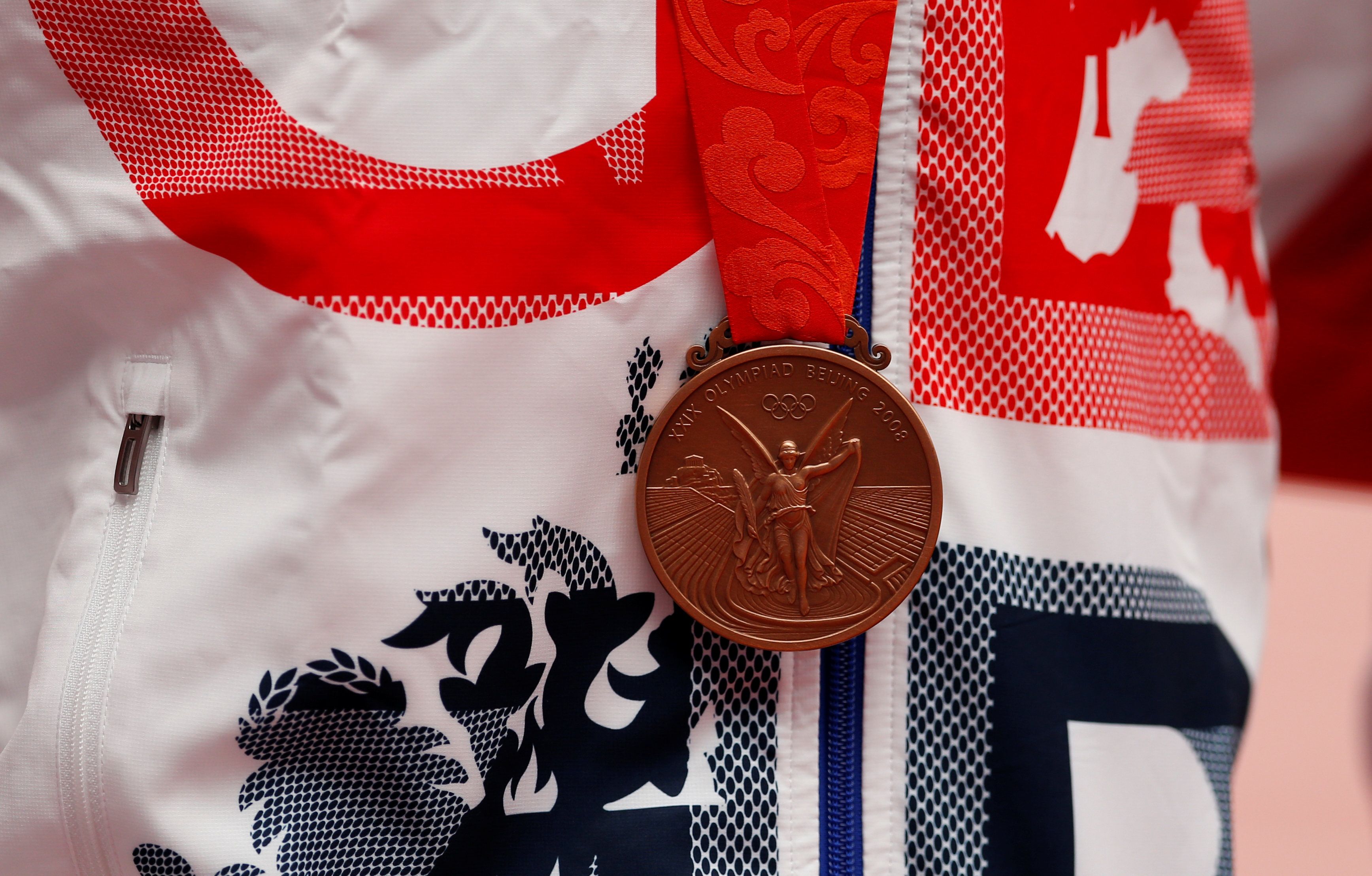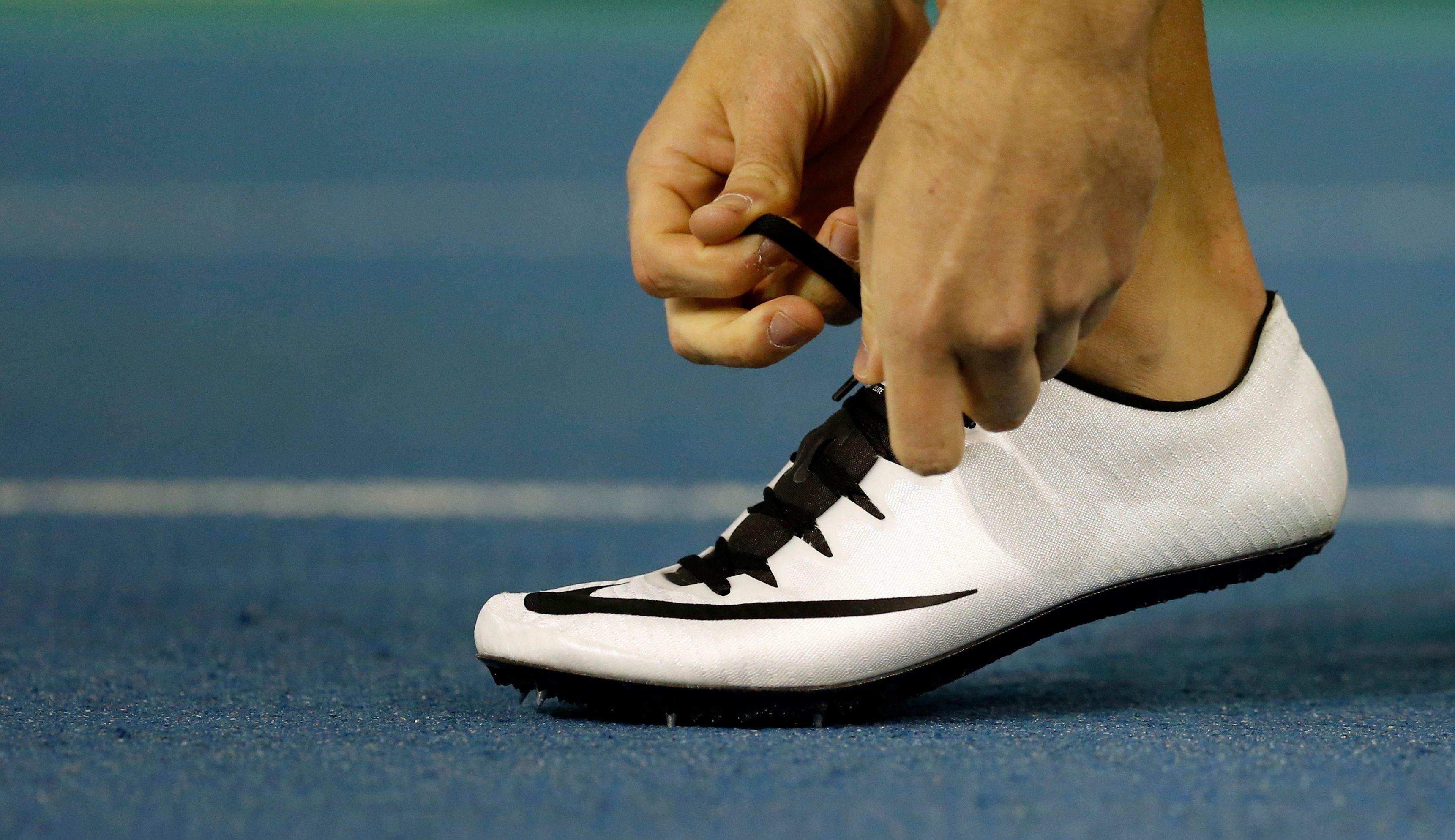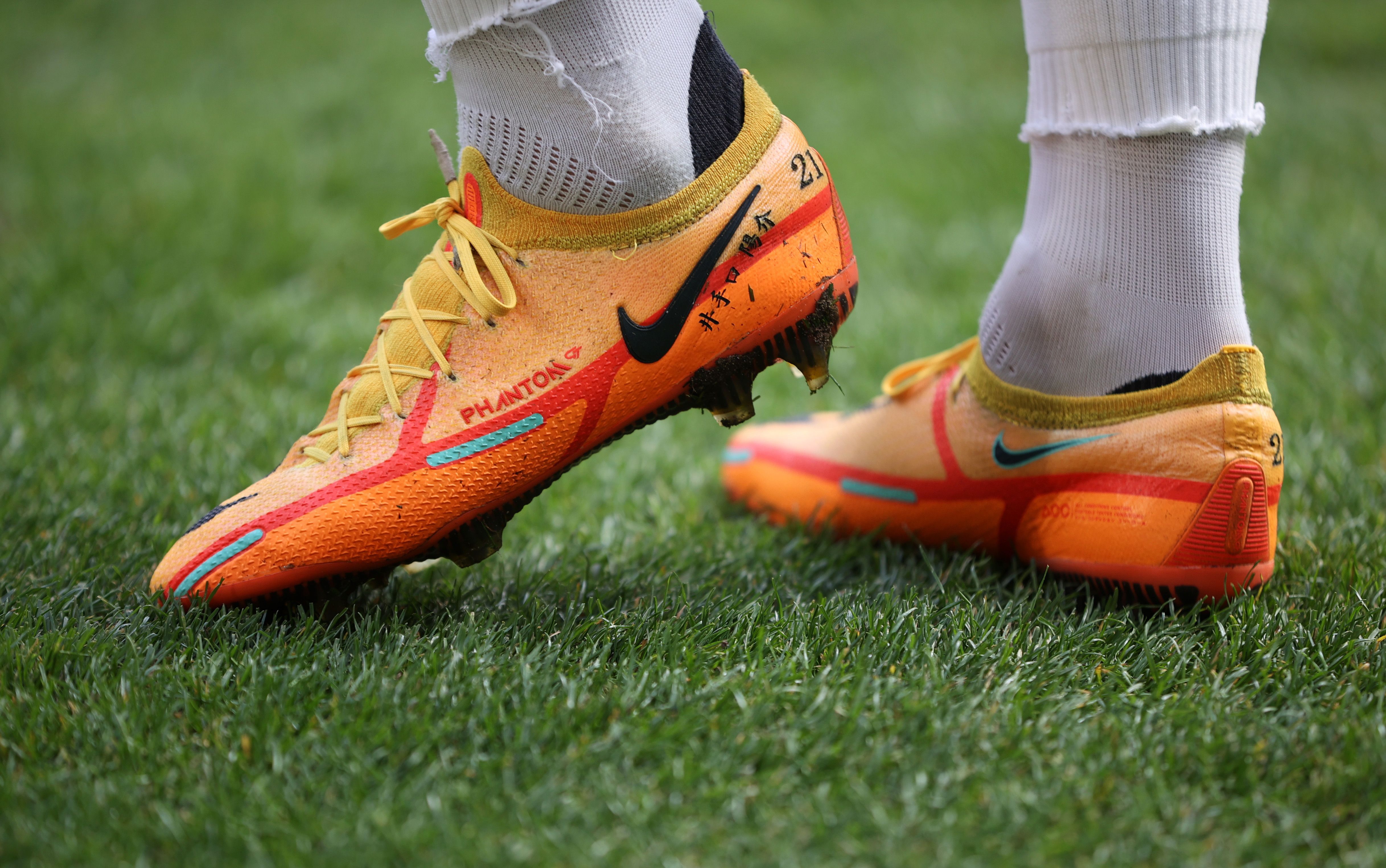An athlete’s health is worth its weight in gold. An athlete’s worth isn’t just weight and gold.
The facts don’t lie: athletes are more likely than the general populace to suffer with an eating disorder.
But in an industry revolving around the cold, hard, impersonal statistics of medal totals, goal tallies, kilograms lifted, distance covered and punches thrown, are the fundamentally human struggles of mental health problems such as eating disorders forgotten along the way?
Eating disorders in sport
Beat, the UK’s leading charity supporting those affected by eating disorders, makes things crystal-clear with its Director of External Affairs, Tom Quinn, explaining: “Male and female athletes are at a higher risk of developing an eating disorder in comparison to non-athletes, which is why safeguarding professionals in the sporting industry is so important.
“Concerningly, some UK sports have practices that could negatively impact people with or vulnerable to eating disorders. For instance, compulsory daily weigh-ins can motivate athletes who are currently unwell to engage in harmful behaviours to reach a target weight, such as overexercising or restricting their food intake.”
To think that eating disorders, a title under which anorexia nervosa – previously found to have the highest mortality rate of any mental disorder – falls, can prove such an omnipresent risk in sport and yet be simultaneously so woefully misunderstood in the industry is alarming beyond belief.
The topic so often seems cloistered away in quiet corners of sporting discourse, either occasionally wheeled out into the spotlight as tokenism or legitimately, genuinely highlighted by those to whom it means so much in brave efforts not given the attention they deserve.
It shouldn’t be that way.
Rather, as part of the infinitely-important movement to talk more and more about mental health, we need to unabashedly bang the drum that education, safeguarding and awareness surrounding eating disorders should, and must, be increased. Now.
Athletics - World Athletics Championships - Men's 100 Metres - Semi Final - Hayward Field, Eugene, Oregon, U.S. - July 16, 2022 General view during the men's 100 metres semi final heat 1 REUTERS/Brian Snyder
Your humble GIVEMESPORT writer neither possesses the power, expert knowledge nor resources to lead even so much as a battalion in that war effort, but I can certainly do my upmost to keep the conversation flowing.
To not use my platform to do as such, in all honesty, would feel criminal.
Having myself been the primary carer for a loved one who has suffered with an eating disorder, knowing just a tiny fraction of what these entirely unique and insidious illnesses can do, I am determined not to be a spectator.
It is, therefore, with the best intentions that I seek to try and unpack, unravel and unpick the complex web that is the relationship between eating disorders and sport through the courageous stories of those who have experienced it first-hand and those leading the charge for a better future.
After all, there is good reason to believe that the way in which these most destructive of conditions find such a plush and comfortable living space in sport is, at least in part, assisted by the very way we all view the industry, and the athletes within it.
Jenny’s story
Jenny Nesbitt is one of Britain’s finest long-distance runners. Having represented Wales at the 2018 Commonwealth Games and Team GB at the 2019 World Cross Country Championships, she knows exactly what it takes to compete at the highest level.
The 27-year-old has enjoyed a fabulous 2022 in which she has once again qualified for the Wales senior squad, posting impressive personal bests in the 1,500 metres and 3,000 metres.
But just as remarkable, if not more so, is the way in which Nesbitt recounts her journey up until this high point, speaking with such courageous honesty and openness about the role eating disorders have played in her life.
WALNUT, CALIFORNIA - MAY 19: Jenny Nesbitt and Katie Izzo react after competing in the women's 5000 meters during the 2022 USATF Distance Classic at Mt. San Antonio College on May 19, 2022 in Walnut, California. (Photo by Katharine Lotze/Getty Images)
A childhood of constant change where Nesbitt would endlessly cycle through schools; travel around the country and eventually see her parents split up would all contribute to an anorexia nervosa diagnosis in her teens.
I spoke to Nesbitt about this traumatic period in her life over Zoom while she was training in the sunshine and nature of Arizona, frankly stirred by the candid, insightful and intelligent way she reflected on her struggles.
“As a child I went through a lot of trauma,” Nesbitt explained. “My parents split up; I was in a different school as a primary school child every other year; we moved around the country a lot and my dad travelled abroad every week, so I didn’t see him until the weekends and I went from being in an all-girls school to a mixed school.
“And I think there was an element of: I need to take control of something in my life now, what is it going to be?”
Nesbitt continued: “I’m a very competitive type of person. I’ve got that ‘Type A’ personality as well and I think the really scary thing about an eating disorder is that you – or for me, anyway – lose weight, then it wasn’t enough, so you wanted to lose more and more and more and more.
“There isn’t an end weight, you just keep going and keep going. And you know, the worse it gets, the bigger the element of control becomes as well.”
Nesbitt was the first person to admit that her ‘inner critic’ played a supporting role in amongst the hardship, flitting between a useful motivating force for improvement and a crushing chant of: nothing is ever good enough.
And it’s one of the key factors that ties sport and eating disorders together because the very same voice that can drive physical excellence can also perpetuate feelings of inadequacy and low self-esteem.
Nevertheless, for each kick in the shins that sport might dish out, it also offers a leg-up to salvation, and you could tell that it was with great pride that Nesbitt could honestly reflect and say that running saved her life.
LISBON, PORTUGAL - DECEMBER 08: (L-R) Jessica Judd, Charlotte Arter, Amy Griffiths, Abbie Donnelly, Kate Avery and Jenny Nesbitt reacts after her finished the Senior Women race of the SPAR European Cross Country Championships at the Parque da Bela Vista on December 08, 2019 in Lisbon, Portugal. (Photo by Oliver Hardt/Getty Images for European Athletics)
While unpacking the causes of her eating disorder, the Wales star mused: “I think it wasn’t until I got diagnosed with anorexia and we started to look at the foundations of where the issue came from that we established that there was a real element of feeling alone and not really having a sense of purpose.”
“I went through years and years and years of therapy and family therapy and counselling and group therapy,” Nesbitt added. “I feel like I’m very fortunate, I still get days where I struggle and I have to use coping mechanisms that I’ve established, but I feel like I’ve far removed myself away from where I was to be able to reflect on it in a different sort of way to establish why those things came out.
“But during it, I don't think I ever realised that was the underlying cause. And for me, sport and running… well, I say that running saved my life. I really do believe that. It was something that I was so passionate about and something that I wanted to excel in that I would do anything I could to do so, and that involved me having to put on weight and gain weight, sort out the things in my head and the reasons they were occurring.
“I think that was the saving grace for me.”
And that, ultimately, is the great message of hope to take away from sport’s complicated dialogue with eating disorders because it can be just as much the saviour as it can be a contributing factor in the illness.
We all need a purpose, goal or passion in our lives that can drive us on to make positive changes that mean the difficulty and hardships of doing so feel worth the monumental efforts it can take.
The pursuit of excellence just can’t be one in which the pall of perfection makes the journey unbearable, and the destination unreachable.
But amongst the wider issues at play here is a need for practicality: what can be done to ensure that athletes who do suffer with eating disorders are given the help that they need?
Are those at the top with the greatest influence of all scaling their efforts in accordance with an eating disorder crisis amplified by the climate of sport, as well as the post-pandemic stresses of everyday life?
HYERES, FRANCE - DECEMBER 13: Jenny Nesbitt of Great Britain competes in the Women's U23 race during the Spar European Cross Country Championships on December 13, 2015 in Hyeres, France. (Photo by Michael Steele/Getty Images)
When I asked Nesbitt whether or not she thought sporting organisations do enough to spread awareness about eating disorders, her answer was an emphatic one: “No. I don’t think they do.
“I think they’re doing more now and I think that’s because it’s slowly becoming a little less stigmatised. But I know growing up as an athlete suffering from an eating disorder: there was nothing, no support out there at all, absolutely none.
“I was lucky to have a coach that understood my needs and parents who were very, very efficient at getting me help, but in terms of national governing bodies, none at all. Like, none.
“I remember going on various competitions and camps with girls who were clearly, clearly in need of desperate help and there was nothing, nothing, that was being done to help them. They were just happening to be running well that month before they ended up in a hospital admission.
“They’re so focused on performance, elite performance, that they don’t necessarily care that much about the person.”
Nesbitt can, of course, only speak from her personal experience, but the fact any one athlete referring to any one period of time could point to a potentially life-threatening lack of help is nothing shy of terrifying.
Governing bodies are doing more to spread awareness and no doubt are populated by many individuals who have athlete health at the forefront of their minds, but one can’t help hearing Nesbitt’s harrowing words and conclude that it’s still painfully insufficient.
Whether that’s down to a lack of resources, people power, knowledge or even correctly-ordered priorities, who knows, but the moral of the story remains changeless: more must be done.
British Athletics were contacted for a statement in January. They have not responded.
Athletics - British Indoor Championships - Arena Birmingham, Birmingham, Britain - February 17, 2018 General view as athletes leave their blocks in a women's 60m heat Action Images via Reuters/Andrew Boyers
Harry’s story
Harry Mattick’s proudest achievement in figure skating is landing a quadruple jump at a healthy weight, and for good reason.
When I visited the four-time British junior national champion at the Oxford Ice Rink on a quiet Monday afternoon, I was treated to a front-row seat for that most impressive of stunts: spinning four times at break-neck speeds before crunching back down on the ice.
We watched back the CCTV footage in the rink’s staff offices. It was hard not to marvel at a move which, to those unaware, might seem like ice-skating bread and butter, but is in fact a symbol of defiance from Mattick after everything that he’s been through.
From having first been recommended ice skating on the back of suffering a severe brain injury as part of a car accident that took his father’s life, the Bradford-born star went onto tell me about horrendous abuse that he suffered at the hands of a high-level Russian coach.
The 28-year-old explained how what first appeared to be a fantastic opportunity for his skating career devolved into a domineering regime of relentless weigh-ins that brought him to the point of suicidal thoughts and multiple eating disorders.
Having reached a crossroads in his young career upon the tragic passing of his coach from cancer, Mattick recalled how everything changed when the Russian in question came into his life, explaining: “We started to get this attention from this amazing [coach] and it was very, very good.
BATH, ENGLAND - AUGUST 09: Harry Mattick of the British Winter Olympic Figure Skating Team poses for a portrait during the Team GB Winter Olympic Media Summit at Bath University on August 9, 2013 in Bath, England. (Photo by Warren Little/Getty Images)
“So, we went and the training was amazing. It was one of those things where you would go and do something not quite right and he’d say: ‘Fix this,’ and then suddenly it was better. You’d have been struggling on a jump for months and he’d make one comment, you’d change one thing and you’d land it straight away perfectly.
“And you’re just like: ‘How? This is magic. How have you fixed this jump? How have you already made me this much of a better skater in just a few weeks?’”
But the red flags soon started to flutter in the coming storm with Mattick retelling: “I was landing quads and I was very anorexic, and at least becoming bulimic as well. And I then went home one Christmas, gained quite a bit of weight, came back and that’s when the abuse really hit.”
He added: “I just remember after that point, that’s when I think the name-calling started, you know: ‘We’ve got five hours of ice, we’re going to jump until you die,’ kind of training. That was when the sweatsuits started.”
Tales of constant weigh-ins, constant running, constant pressure and what can only be relayed as constant oppression to the point of multiple eating disorders and mental health crises saw Mattick stricken with a chilling sense of anxiety attached to losing weight.
The visceral nature in which he described that feeling to me continues to haunt: “The anxiety of it was very much like this: if you imagine that you fall face-first into some human waste and you’ve got it all over your chest.
“That kind of disgust of like: ‘Just get it off me.’ The panic, or like having a massive spider on you. That kind of instinctual panic and disgust of: ‘This is absolutely revolting, get it off me,’ that’s how I viewed the weight I ‘needed’ to lose.”
2022 Beijing Olympics - Figure Skating - Training Rink Capital Indoor Stadium, Beijing, China - February 12, 2022. General view of the skates of Kamila Valieva of the Russian Olympic Committee during training. REUTERS/Aleksandra Szmigiel
While Mattick was able to execute the coveted ‘quads’ throughout these most difficult of times, it was his ability to achieve the very same feat later in his career with a healthy physique that stands out to him as his magnum opus in the sport.
Mattick resolved with immense pride: “For me, the fact that I successfully did the quads in competition at a weight that was healthy is the main achievement.
“It sounds very good to turn around and say: ‘I have a British record in figure skating,' but I actually care more about proving that you can do quads healthily. Abuse in sport is detrimental to the athlete and so it’s very important to me to spread the message that it isn’t necessary or helpful to force athletes to be super skinny and that promoting the athlete's health should be the top priority."
It was, in the absence of a better phrase, two fingers up to those who might have Mattick and other athletes believe that tyrannical diets and pressures are the only path to sporting excellence.
But even in a world where that was the case – and it really isn’t, by the way – how could anyone sit by and let the sporting engine crank on as some sort of inhuman mechanism wringing gold medals and high scores out of athletes at the expense of their health?
Better we are for celebrating athletes like Mattick reaching new heights in healthy, replicable fashion than grinding sportspeople into the earth in the hope that maybe, just maybe, casting aside their wellbeing nets an extra 1 or 2% in performance.
“You need to put the athlete first, they’re human beings,” Mattick concluded with great passion and, in turn, poignancy. “We are people. Granted, we want to achieve, we want to do things that are ground-breaking, but not at the expense of the person. I can’t get on board with that.”
GANGNEUNG, SOUTH KOREA - FEBRUARY 28: Harry Mattick of United Kingdom competes on day one of the 2011 World Junior Figure Skating Championships at Gangneung International Ice Rink on February 28, 2011 in Gangneung, South Korea. (Photo by Chung Sung-Jun/Getty Images)
We can only be thankful that Mattick, in the end, had access to support and help that would ultimately see him emerge from his battle with eating disorders as a much stronger athlete, and human being as well.
The GB star recalled: “It was Hilary Selby, I think, who I emailed and she was very supportive. She organised to take a statement. I told them as much as I could remember. We were there for hours just sort of saying: ‘He did this, he did that, he did this, he did that.’
“They wrote it all down and they went to the United States’ federation and they were pursuing legal routes to take his license away.”
Now, Mattick, enjoying his skating more than ever, has recovered from his eating disorders and has his sights set on competing at the 2026 Olympics alongside his skating partner Lydia Smart.
When British Ice Skating were contacted for a statement on their policies towards eating disorders amongst athletes, a spokesperson replied: “We are committed to ensuring the sport is a place that every participant’s welfare is protected, with one key tool in combatting eating disorders being education.”
They explained how coaches are required to complete professional development sessions which include identifying eating disorders and that a dedicated Safeguarding Officer is employed to treat any concerns raised by athletes with the upmost seriousness.
2022 Beijing Olympics - Figure Skating - Women Single Skating - Short Program - Capital Indoor Stadium, Beijing, China - February 15, 2022. General view of Loena Hendrickx of Belgium in action. REUTERS/Aleksandra Szmigiel
Renee’s story
“People don’t understand eating disorders,” Renee McGregor told me with the upmost conviction and eloquence. “People don’t understand what they are, people don’t really want to understand, I don’t think, because it’s confusing and it’s messy.”
McGregor stands at the very front line of the battle for better care and treatment for athletes suffering from eating disorders.
A leading sports dietician who deals closely with that most complex of intersections between athletic performance and mental health through both her En:spire Clinic and book releases, McGregor simply isn’t heard enough within the wider conversation of athlete health.
And that’s most certainly not down to a lack of experience on her behalf with McGregor, an avid sportsperson herself, having worked in performance nutrition for various Olympic, Paralympic and Commonwealth teams between 2012 and 2018.
She continued: “While an eating disorder is a biological illness in the sense that there tends to be a genetic susceptibility – that doesn’t mean you will end up with it, but there does tend to be a genetic susceptibility – really, it’s putting that genetic susceptibility into the ‘perfect storm’ in terms of the psychosocial environment that then causes these dysfunctional behaviours to happen.
“Because these behaviours, they’re a method of avoiding something. They’re a method of avoiding something else that you’re fearful of or concerned about.”
Kindly taking time out of her busy schedule ahead of the publication of her most recent book: ‘More Fuel You,’ McGregor reflected on her time within the goldfish bowl of elite sports and how her unwavering focus on athlete health would not always be given the time of day.
When I asked McGregor if there were ever any times when her advice in the best interest of a sportsperson wasn’t listened to, her reply was a damning one: “Yeah. A lot. I’ve been reduced to tears. I’ve been told: ‘What do I know about eating disorders, I’m just a dietician? Why should I be working in this? Why should I be bringing it up?’ That’s to quote someone from within the sports world.”
McGregor added: “There are times where it has been very, very challenging, particularly when you’re working in the sports world, trying to explain to a coach why an athlete shouldn’t be performing, why they shouldn’t be training, why we need to manage their workload, or that we’re basically setting this athlete up to fail by putting them in this environment.
“It’s been very, very difficult and I definitely haven’t always been heard. To a degree, that’s why I ended up leaving very high performance, that sort of Olympic and Paralympic level sport, because I just wasn’t heard.
“I kept being told that I cared too much. And to me, if that’s the reason that I don’t fit this field, then I’m ok with that because I’d rather care too much than cause more harm.”
General Sport - Singapore 2010 Youth Olympic Games - Opening Ceremony - Singapore - 14/8/10
Singapore youth athletes carry the Olympic flag during the Opening Ceremony
Mandatory Credit: Photo Courtesy of Singapore Sports Council
Hearing McGregor speak about that tug-of-war between priorities, one that she would often lose, painted the starkest picture yet of how the relentless chase for medals and success can make people blind to what’s truly important.
That’s not to wave the accusatory finger at specific individuals but rather to highlight how the vast external pressures of sport can percolate down from boardrooms and onto the shoulders of athletes settling into blocks, rubbing their hands with chalk and pulling up their shin pads.
And McGregor has witnessed that impact with her own two eyes whether through her clinical work with athletes or down on the ground at global sporting events. The impact, that is, of the powers that be burying their head in the sands of results, results, results.
When reflecting upon the role that key UK sporting organisations play in athlete wellbeing, McGregor opined: “It’s incredibly ego driven, it’s very process driven, it’s very much: ‘These are the processes and policies and protocols that we’re going to do and this is what we’re going to apply,’ but it’s not a humanistic approach.
“It’s almost like: ‘Athletes are commodities that fit into this model of ours.’ It’s not actually about understanding the athlete, the fact that they’re a human, the fact they have needs, they have emotions and they need support.
“They do a lot of work with mental health and they say they’re doing a lot on the whole eating disorder area, but really it’s a tick box because again, the people they bring in don’t know what they’re doing. So that’s the issue.”
Athletics - London Anniversary Games - London, Britain - July 9, 2017 General view of a Bronze medal awarded to Great Britain's Martyn Rooney, Andrew Steele, Robert Tobin and Michael Bingham from the 4x400m relay in the 2008 Olympics after Russia was disqualified Action Images via Reuters/Andrew Boyers
To recall that an athlete is a human being seems like the most obvious statement of all time and in many ways, it is.
But in other ways, it really isn’t, because the way in which we all so often treat athletes is utterly incongruous and diametrically opposed to that very standpoint. We sacrifice them on the altar of their own imperfections if, goodness forbid, they ever do something a wink shy of flawless.
As fans, journalists, coaches, volunteers and human beings ourselves, we all need to pause, take stock and ask ourselves honestly: why do we so often judge sport merely by the end result, the final score?
Is it not terrifying that an industry where real people are the products and the popularity is so high that we all treat it as one big zoo - poking the cage out of entitlement - has such an alarming disconnect from the human realities that impact the individuals within it just as it might me and you in our so-called ‘normal’ jobs?
But alas, the relentless chase for excellence - perpetuated to the extreme in sport - often cares not for the collateral damage it causes along the way; as if the silverware at the end of it is some sort of all-healing bandage over which any cut, wound or scar can be hidden.
The devastating irony of it all being that recovery from mental health conditions, eating disorders or not, can often - if not always, frankly - prove an even more Everestian achievement than any accolade or trophy.
A gold medal’s not worth the mould it’s cast into if it comes at the expense of an athlete’s health.
The English Institute of Sport were contacted for a statement on the work that they do to support athletes and referred us to a March 2022 article they wrote for Eating Disorders Awareness Week, highlighting strategies such as athlete education, the use of nutritionists and psychologists as well as the Athlete Medical Scheme and the EIS Mental Health Expert Panel.
To this, McGregor was keen to stress: “While the EIS use nutritionists, technically these individuals do not have the clinic qualifications of experience to understand or work in eating disorders.”
Athletics - Indoor British Championships - English Institute of Sport, Sheffield - 27/2/16
General view of Great Britain's Richard Kilty as he ties his laces before the men's 60m heat
Mandatory Credit: Action Images / Andrew Boyers
Livepic
EDITORIAL USE ONLY.
Putting the humanity back into sport
Any ambitions to make a succinct, bullet-proof conclusion in which every bow is tied feels futile in the context of such a non-uniform issue as eating disorders and their complicated cohabitation with sport.
If three stories of those impacted and involved with the interaction between the two of them tells us anything, though, it should be that eating disorders in sport is not a blanket problem, but rather a vast, intricate mosaic in which every tile makes up its own distinctive picture worth just as much attention and recognition as the others.
Nevertheless, one couldn’t help coming away from these most moving and poignant of conversations without having taken a different look at the way in which we all treat sport, though the prism of those affected by eating disorders.
An uncomfortable feeling, even, that we all-too casually take a colosseum-like approach to sport in which the reputations and happiness of the athletes, gladiators, within it ride or die by whether or not those watching, those detached, give a thumbs up or not.
Only at the extreme-most poles are there such silly things as heroes and villains. Rather, as in sport, as in life, everyone is ultimately in between, anchored to the shades of grey by way of simply being human: utterly and infinitely unique as their fingerprints.
This, ultimately, is the commodity of sport, but the machine, the industry, seems to be desperately failing in its attempts to treat them as such, desperately failing to sufficiently safeguard the fascinating individuals that make it money from distinctly human problems such as eating disorders.
Distinctly human, that is, by way of being so idiosyncratic, and often so unfair.
Soccer Football - Scottish Premiership - Celtic v Motherwell - Celtic Park, Glasgow, Scotland, Britain - May 14, 2022 General view of the boots of Celtic's Yosuke Ideguchi Action Images via Reuters/Molly Darlington
It’s through the invaluable experts, psychologists, doctors, dieticians, therapists, carers and ever-inspiring efforts of the sufferers themselves that the battle against the many faces of eating disorders will ultimately be won.
But make no mistake, that all of us – myself included – can benefit from a change in perspective when watching, consuming and funding an industry like sport in which the fragility of mental health, present in absolutely every walk of life, can be so horrendously accentuated.
Could there not, after all, be anything more sportsmanlike than to extend athletes the kindness and empathy they deserve?




















